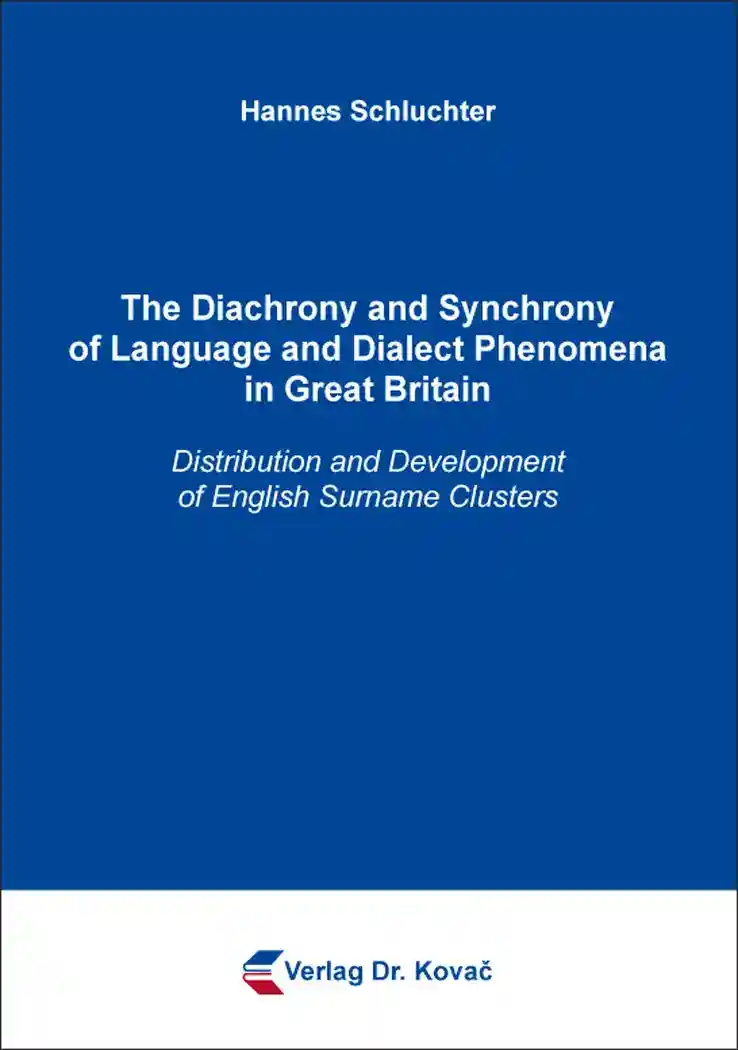Hannes SchluchterThe Diachrony and Synchrony of Language and Dialect Phenomena in Great Britain
Distribution and Development of English Surname Clusters
PHILOLOGIA – Sprachwissenschaftliche Forschungsergebnisse, volume 238
Hamburg 2018, 390 pages
ISBN 978-3-339-10414-4 (print)
ISBN 978-3-339-10415-1 (eBook)
About this book deutschenglish
The entity of British surnames represents a unique aspect of English vocabulary because it has undergone a divergent development parallel to the standard language. Before the introduction of standard orthography around 1700, historical spelling had certainly not been consistent or uniform, thereby giving rise to many spelling variants of the same words. The same situation applies to surnames but the standardisation process of English spelling during the early 18th century did not influence the diversity of surname variants. Until the end of the 15th century, writers not only wrote in their own dialect but also spelled each word exactly as they heard and perceived it. This phonetic method of transcription very often resulted in markedly individual spellings, which reveal details about a scribe’s pronunciation as well as the dialect region from which the writer may have stemmed. Many of the deviations from today’s standard language that reveal interesting general or regional developments of the English language have survived in a large number of surnames.
Accordingly, this book focuses on analysing and discussing some of these developments in Great Britain by making use of certain surnames’ idiosyncrasies. The main aim of this work is to both diachronically and synchronically highlight some of the most prominent English language and dialect phenomena in addition to foreign influences on English. The data of more than 500,000 surname-bearers ranging from the 16th to the 21st century were incorporated for mapping purposes in order to prove that the geographical origins of many surnames can be retraced and reconstructed by analysing relevant genealogical databases or telephone directories.
